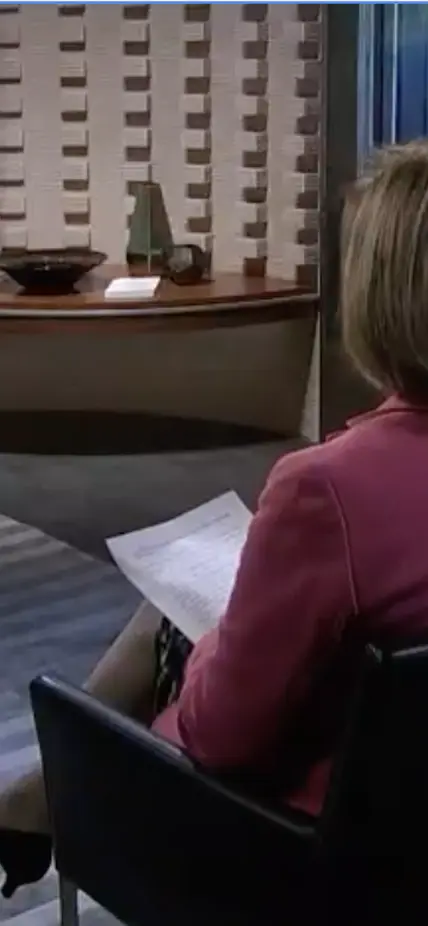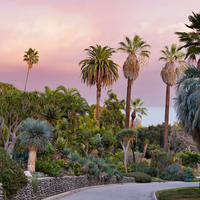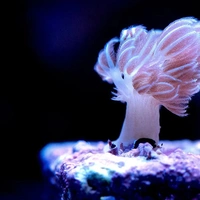Former Carnegie Postdoctoral Fellow Meredith MacGregor, now an Assistant Professor at the University of Colorado, joined Susan Swain on C-Span for a Q&A session on NASA’s James Webb Space Telescope (JWST).
During the interview, MacGregor discusses how this new telescope will use infrared light to peer into the early development of our Universe. She also explains that scientists, like those at the Earth and Planets Laboratory (EPL), will use the telescope to probe and characterize the atmospheres of faraway planets. These projects will look at the spectral fingerprint of exoplanets to shed light on how planets, like ours, develop and if there may be more habitable worlds out there.
“We’re trying to understand how planetary systems like ours form,” explains MacGregor, “and we’re also trying to characterize individual planets in those systems.”
The interview switches tracks to discuss the development and deployment of the telescope itself. MacGregor explains how scientists held their breath as the elaborate “origami” telescope unfolded—first, the protective sun-shield followed by the secondary mirror swinging into place and finally the iconic hexagonal primary mirror.
“Knock on wood,” said MacGregor when Swain asked if there were any more “hold your breath” moments in the next stages of deployment. “Things can always still go wrong, but there are no more major pieces that still need to go in place for the telescope to function.” She continued, “I’m really excited that we might get some interesting data in a matter of months.”
MacGregor also discusses STEM education and how missions like JWST have captured the minds of the general public and inspired a new generation of space scientists.
“Astronomy is cool. It’s a pretty fun place where the public and kids can get excited about space and look at cool things. We can use it as an opportunity to teach science.”
According to MacGregor and the NASA timeline, we should be getting the first data from JWST this summer.
Carnegie and JWST
In addition to MacGregor, several Carnegie astronomers will be among the first to lead projects using data from JWST observations. Their planned investigations will span the breadth of expertise at both the Observatories and EPL—from exploring the makeup of distant worlds to revealing the secrets of ancient galaxies and probing cosmological questions.
Unveiling the Nature of the Impossible Planets
Staff Scientist Peter Gao will use his 5.1 hours of observing time on JWST to improve our knowledge of a type of cotton candy-like planets called super-puffs, which “have masses of only a few times that of Earth, but sizes like those of the giant planets in the Solar System,” he explains. Gao hopes that the revolutionary space telescope will enable him to reveal the underlying explanation for the unusual densities of this adorably named planetary class.
Seeing the Forest and the Trees: Unveiling Small Planet Atmospheres with a Population-Level Framework
Staff Scientist Johanna Teske will co-lead this project to better understand the most common types of planets in our Milky Way galaxy—called super-Earths or sub-Neptunes—which mysteriously are not found in our own Solar System. JWST will allow her to “try to figure out how much variety there is in these planets’ atmospheric composition,” as well as the phenomena that control this composition, information that could reveal whether or not these “types of planets have the conditions conducive to life.”
Teske’s project was awarded 142.6 hours of observing time, by far the largest exoplanet program selected in Cycle 1 and the third largest across all selected JWST programs.
“Carnegie researchers have been involved with JWST since Observatories staff scientist Alan Dressler chaired the committee that led to its conception 25 years ago,” said Carnegie Science Deputy and Observatories Director John Mulchaey. “The number of Carnegie scientists whose proposals were selected for JWST observing time illustrates the outsized impact that this institution has had on the scientific endeavor. I’m confident that these and future projects will continue to drive discovery in astrophysics, astronomy, and planetary science.”
Learn more about all of Carnegie’s JWST projects here.
We are currently hiring for a JWST Exoplanet Observation Postdoctoral Fellow position.



